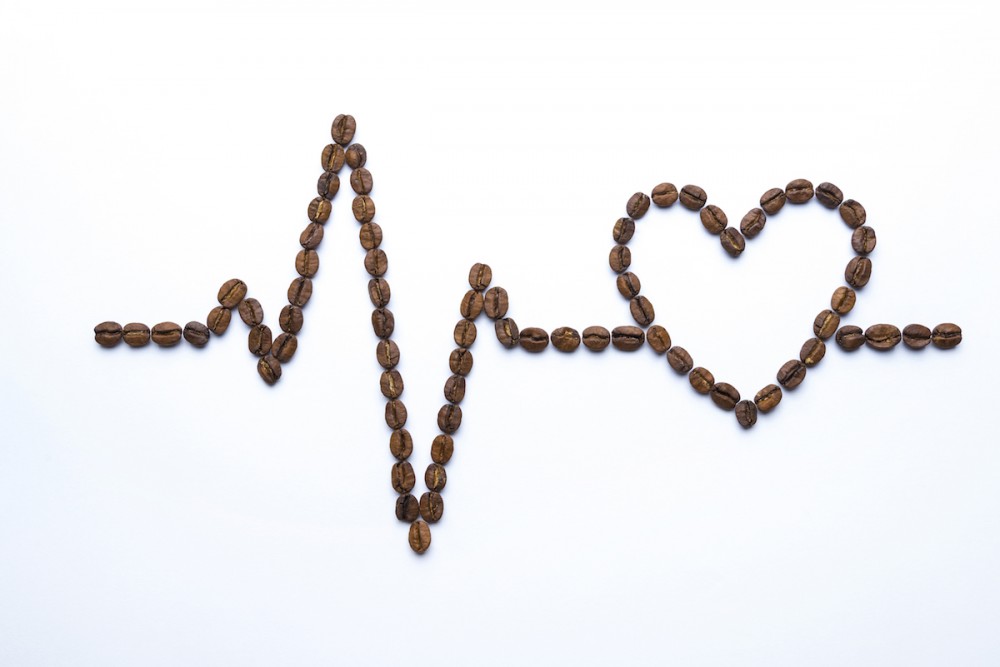
Decaf is short for decaffeinated coffee. It’s marketed to people that love the taste of coffee but can’t handle the side effects of consuming caffeine. Decaf allows java lovers to enjoy several cups without experiencing jitters, heart palpitations, gastrointestinal issues, or sleepless nights. Dentists recommend decaf because it’s less acidic and won't damage teeth enamel. OB-GYN doctors recommend decaf to their pregnant patients because caffeinated coffee causes a reduction in body fluid levels which can lead to dehydration. Caffeine also crosses the placenta to the baby. And cardiologists recommend decaf because caffeine can cause heart arrhythmias and increase blood pressure.
But is drinking decaf healthy?
Unfortunately, the answer to that rarely asked question is NO!
Caffeine is removed from coffee beans by soaking them in a chemical solvent called methylene chloride. This solvent is also used in adhesive removers, household cleaners, degreasers, paint thinners, and nail polish remover. Yes, the same chemical that removes the grease from dirty stoves is what also removes 97 percent of the caffeine from coffee. In November 2019, the EPA banned Methylene Chloride due to “unreasonable risks” to human health. The Department of Health and Human Services (DHHS) has determined that methylene chloride is a “cancer-causing chemical.” This sure puts a new spin on the term “Killer cup of coffee”! But even so, the FDA still allows this chemical to be used for coffee decaffeination. Small exposure to methylene chloride may slow down the neurotransmitters of the brain and has been linked to triggering autoimmune disorders, especially rheumatoid arthritis.
On August 26, 2020, Clean Label Project, a national nonprofit organization, filed lawsuits against five of the largest U.S coffee brands: Maxwell House, Peet’s, Keurig, Amazon Fresh, and Smucker’s. According to the lawsuits, defendants engaged in false and/or deceptive labeling, marketing, and sale of their decaffeinated coffee products as “100% Pure.” However, testing by an independent lab revealed quantifiable amounts of the toxic chemical methylene chloride.
Some coffee makers claim on their label that their beans are “naturally decaffeinated” because they use ethyl acetate, a compound also found naturally in some produce. What they fail to mention is, as with methylene chloride, ethyl acetate is typically produced synthetically. It’s also considered a “hazardous substance” and regulated by several agencies. Ethyl Acetate can be very damaging to internal organs if you are repeatedly exposed to it for long periods of time.
While there are safer ways to decaffeinate coffee beans, like the Swiss method and using CO2; unfortunately, because of their higher cost and added time, the majority of coffee producers globally use the Methylene Chloride solvent process. Beware: Many roasters using chemicals claim to use safer methods to fool consumers into trusting their brand.
BEANS BEANS BAD FOR THE HEART

The decaffeination process isn’t the only health concern. The type of beans used may also pose a risk. The decaffeination process extracts the compounds that give coffee its flavor, so stronger flavored Robusta beans are used. Robusta beans contain a much higher content of fats, called diptenes, which stimulate fatty acid production in the body. This may promote heart disease risk factors. A study funded by the National Institutes of Health found that decaffeinated — not caffeinated — coffee may cause an increase in harmful LDL cholesterol.
While there exists a plethora of research on the health benefits of caffeinated coffee (see my previous article,) the decaffeinated variety is an ultra-processed food item and lacks many of the health benefits you get from a traditional cup of Joe. One in particular that is removed during the decaf process is a polyphenol called chlorogenic acid, which helps improve immunity, aids in weight loss, and may even slow cellular aging.
If you want to cut back on your caffeine consumption, it’s better to dilute your caffeinated cup of Java, or choose a healthier option without the jitters. See my article: Coffee Alternatives with No Jitters or Crash.
About the Author
Dr. David Friedman is the author of the award-winning, #1 national best-selling book Food Sanity, How to Eat in a World of Fads and Fiction. He's a Doctor of Naturopathy, Chiropractic Neurologist, Clinical Nutritionist, Board Certified Alternative Medical Practitioner, and Board Certified in Integrative Medicine. Dr. Friedman is a syndicated television health expert and host of To Your Good Health Radio, which has changed the face of talk radio by incorporating entertainment, shock value, and solutions to everyday health and wellness issues.
Read more hereFOODSANITY.COM .